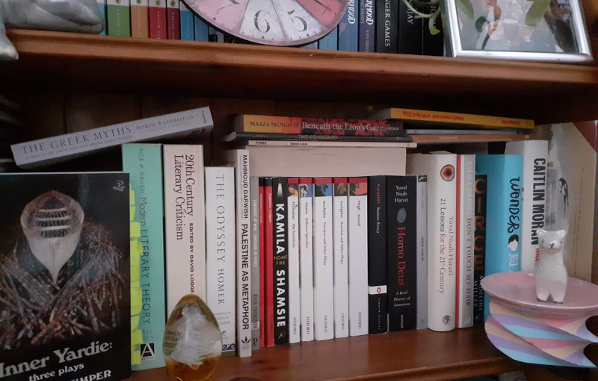
Hi, my name is Sasha and I am a 3rd year Comparative Literature student at King’s!
When I was researching courses I wanted to study at university, looking at past reading lists really helped me narrow down my choices – but reading about someone’s personal experience with modules would have been even more useful.
So, to give you a better idea of the range of authors and texts you can study during your degree, here is a list of my favourite modules from the Comparative Literature department so far!
1st year – The Novel in 18th Century Europe and Forms of Shorter Narrative
This module was one of the first modules I studied during my degree and I really enjoyed it because it introduced me to new authors like Denis Diderot (‘The Nun’) and Abbe Prevost (‘Manon Lescaut’). I ended up writing my first university essays about both books, exploring control in ‘Manon Lescaut’ and passion in ‘The Nun’ and they’re still two of my favourite essays that I’ve written.
Authors studied: Jane Austen, Denis Diderot, Abbe Prevost, Daniel Defoe, Wolfgang Goethe, Horace Walpole.
Another great module from my first year was called Forms of Shorter Narrative, where we studied different genres of short stories, from allegorical to modernist and romantic, by authors like Franz Kafka and Nikolai Gogol. This module is one of my favourites because it emphasised how multicultural the Comparative Literature degree is, as it introduced me to the writing of Saadat Hasan Manto and Olga Tokarczuk alongside authors I already knew, and both Manto and Tokarczuk explored fragmentation in fascinating ways within their work.
Authors studied: Franz Kafka, Nikolai Gogol, Saadat Hasan Manto, Olga Tokarczuk, Adalbert von Chamisso, Ingeborg Bachmann, E. T. A. Hoffmann, Virginia Woolf, Etgar Keret.
2nd year: Romantic Britain and Italy 1750-1820
This module focused both on the work of the romantics in Britain and Italy and the ways in which British romantic poets like Shelley and Byron drew inspiration from Italian culture and literature.
Romantic Britain and Italy is a great example of a module which was accessible to those without prior Italian knowledge (like me) but also encouraged those who spoke the language to use their knowledge of Italian during discussions about translations. It should be noted that because Comparative Literature attracts a lot of multilingual students, it can be interesting to explore the limits of translations during seminars with people who can read the texts in their original language.
Authors studied: Dante Alighieri, Madame de Stael, Percy Shelley, Lord Byron, Ugo Foscolo, Giacomo Leopardi
3rd year (so far): Modern Myths
Modern Myths was a great module because it encouraged us to critically approach the act of mythmaking and explore the differences and similarities between myths, legends and fairy tales. This module also had a great mid-semester assessment, a creative media pitch, where we pitched the myth we believed could be adapted in the contemporary world. We also studied a wide range of genres during this module, from oral poetry to manga.
The highlights of this module for me were being able to study Angela Carter’s ‘The Bloody Chamber’ in more detail and learning about what role Japanese mythology plays in ‘InuYasha’ by Rumiko Takahashi.
Authors studied: Rumiko Takahashi, Angela Carter, Kae Tempest, Patrick Chamoiseau, A. S. Byatt, Alejo Carpentier, Inua Ellams, Zora Neale Hurston, Junot Diaz.
Overall, after studying primarily anglophone authors in my English Literature A-Level, being able to explore different genres of writing from so many different cultures has been the highlight of studying Comparative Literature at King’s!
By Sasha Eremenko, Comparative Literature BA
* King’s College London reviews the modules offered on a regular basis to provide up-to-date, innovative and relevant programmes of study. Therefore, modules offered may change. We suggest you keep an eye on the course finder on our website for updates.
For more information on the Comparative Literature BA, click here
To read about Sasha’s typical day as a Comparative Literature student, click here.

Leave a Reply